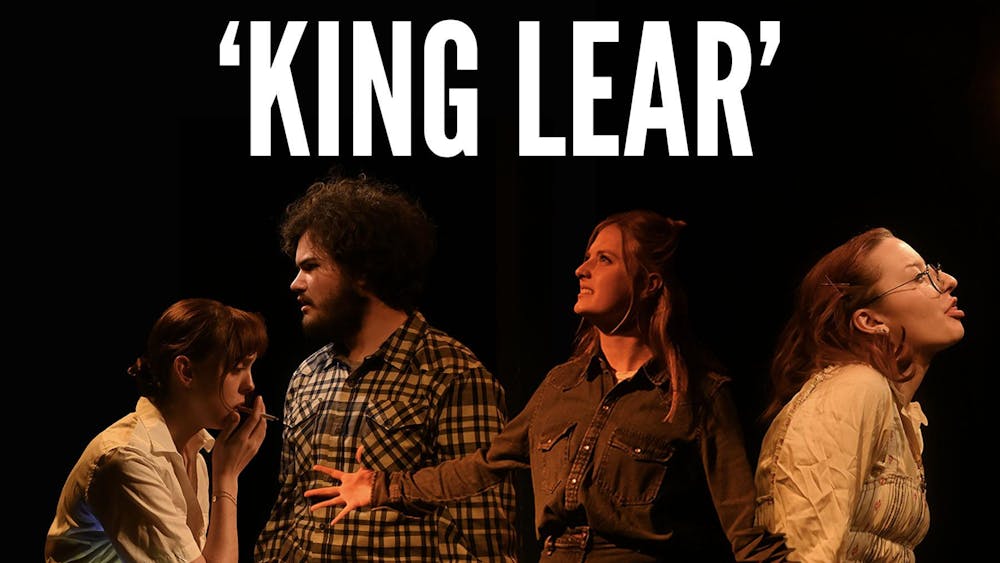
“I wanna make something like that,” Evan Stephens Hall of Pinegrove tells Pitchfork, referencing The Sound and the Fury, Ulysses and The Crying of Lot 49 “— a love album about semiotics, or a semiotics album about love.” Harmless, it seems.
His “&” EP investigates a lone character, the ampersand, dissecting its implications tentatively. Its benign facades hide the seeds to his eventual downfall among the meta-signified, but he’s too entranced in its mythological system to notice.
“I’m misaligned,” he begins, with greater accuracy than he knows. “Misanthropy to pass the time.”
“I’m so ashamed,” his subconscious predicts. “Yes, that’s it, I’m so ashamed / & so is she.”
It seeps to the edge of the void — “I’ve been trying to say / But these awful letters rearrange / My name: my namesake.”
The void, he claims to have been avoiding, envelops him.
On November 21, 2017, a long, uncapitalized post on Pinegrove’s Facebook
“a message from evan: […] i have been accused of sexual coercion. the accusation comes from someone i was involved with for a short but intense period of time […] i believed all our decisions to be based in love. still, i am coming to terms with the fact that i monumentally misread the situation.”
Not harmless. It seems.
Semiotics and the male gaze yields toxic product.
Semiotics? According to Ferdinand de Saussure’s Course in General Linguistics, the field is the study of the “sign, signifier, signified.” “The linguistic sign,” he says, “unites, not a thing and a name, but a concept and a sound image. The latter is not the material sound, a purely physical thing, but the psychological imprint of the sound, the impression it makes on the senses.”
But sex is physical. What if someone were to signify sex?
“I know you / You know our bodies move in unison,” Evan claims in song. Don’t confound art and the artist. So we are told.
Roland Barthes offers his services. Evan has duped himself into a mythology — the semiological system known as the love song. Mythology, Barthes says, creates a semiological problem. In a Sausserian system the signifier and signified work together to create a sign. The sign can, in turn, be deconstructed to signifier and signified. But myths do not function as such. Mythologically speaking, “that which is a sign in the first system” (Evan's signifiers — “two weeks spent together […] met my parents […] spent as much time together as possible” and signified — mutual devotion) becomes a mere signifier in the second (signifier — Evan’s actions and belief in mutual devotion — signified — the manipulative effects of the mailed gaze when paired with sexual energy, coercion, manipulation). The victim of Evan’s desire sees the second level of the mythological system, feels its brutish force, but remains powerless to the weight of his first level delusions.
Here we find Michel Foucault’s theory clearly defined: “On the face of it, our [Western] civilization possesses no ars erotica” — that being sex wherein “truth is drawn from pleasure itself.” Rather, we find patriarchal “procedures for telling the truth of sex which are geared to a form of knowledge power” — namely, the confession.
Briefly, sex is a taboo. Those engaged wish not to divulge. He, or she, who maintains control over the confession (mainly, the subjugated desire not to confess) has implicit power over the subjugated. Patriarchal tradition tells us that he, not she, will hold the power.
But she’s had enough. And confession is no longer the critical signifier. To tell is not taboo. Think #MeToo. Now she steps forward, and he (Evan and all others who export the male gaze) must come to terms with his abuse of power.
Barthe’s monstrueux: “The subject suddenly realizes that he is imprisoning the loved object in a net of tyrannies: he has been pitiable, now he becomes monstrous."
And what is a myth without a monster? Sadly, it’s all too easy for someone to become the monster of his (and I gender with purpose here) myth.
Evan’s actions — so in tune with antiquated dynamics of power — rearrange his namesake. Not a sensitive (pitiable) kid from the suburban drawl but a writer (and participant) of those malicious myths we sometimes mistake for love songs.
We (those who go by he) have to listen.
As Audre Lorde attests, she will share her side: “I have come to believe over and over again that what is most important to me is to be spoken, made verbal and shared, even at the risk of having it bruised or misunderstood.”
And let us try, try desperately, not to misunderstand. The consequences have been dire.









